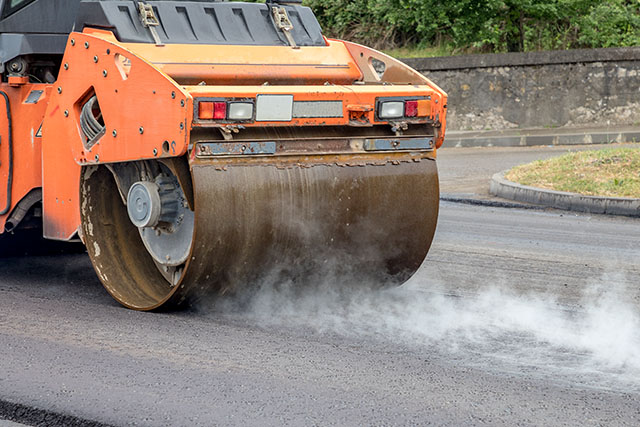Getting Paid Faster in Arizona with Liens, Bonds and Contracts. - Webinar
Accelerate Payment Processes in Arizona with Liens, Bonds, and Contracts.
Last updated:
Feb
20
,
2026
Published:
Oct 30, 2023
5.5
Read
Getting paid promptly in the construction industry is crucial for the success of any project. In Arizona, like in many other states, there are specific laws and regulations that govern payment procedures in construction.
In this blog, presented by SunRay Construction Solutions and Kevin M Estevez, Member, Holden Willits PLC, we will discuss the key steps and strategies to ensure that you get paid on time for your construction projects in Arizona.
How to Get Paid on time in Arizona?
Getting paid on time in Arizona for construction projects involves following specific procedures and ensuring that you have the necessary documentation in place. Here are some steps to help you get paid promptly
Step 1 - Be a Licensed Contractor
Before diving into the intricacies of payment procedures, the very first step to ensure you get paid is to be a licensed contractor. This is not just good practice; it's a legal requirement in Arizona. Failure to have the right license can be a major obstacle to getting paid.
Arizona Revised Statutes, A.R.S. § 32-1151 states that it is unlawful to engage in construction services without a contractor's license in good standing. While there are some exemptions under Class 1 Misdemeanor - ARS § 32-1164, in most cases, you need to be a licensed contractor to perform construction work in Arizona.
The importance of being a licensed contractor in relation to payment becomes evident when you look at A.R.S. § 32-1153. It specifies that no contractor can take legal action for the collection of compensation without alleging and proving that they were a duly licensed contractor when the contract was entered into and when the alleged cause of action arose.
In simpler terms, if you're not a licensed contractor when you enter a contract and perform the work, you won't have legal recourse to collect the money owed to you. So, the first step to getting paid faster is to ensure you are a licensed contractor with the appropriate license for the work you're doing.

Step 2 - Serve a Preliminary 20-Day Notice
One of the most important steps to ensure you get paid for your work in Arizona is to serve a Preliminary 20-Day Notice. This is a crucial document for both lien claims and bond claims.
As per A.R.S. § 33-992.01(B), except for laborers for wages, every lien claimant and some Little Miller Act bond claimants in Arizona must serve a preliminary 20-day notice within 20 days of beginning work. Failure to serve this notice can result in forfeiture of your lien rights.
The purpose of the 20-Day Notice is to provide advance information about unpaid claimants to the owner or the party responsible for posting the bond. It alerts them to potential claims against the project.
The consequences of not serving a timely 20-Day Notice can be severe. It could lead to the forfeiture of your lien and bond rights, making it difficult to recover the money you're owed.
Step 3 - Preserve Your Lien Rights
In Arizona, it's essential to understand how to preserve your lien rights. Here is what you need to do after you record your lien -
- After recording your lien, you must serve the notice and claim of lien.
- You should be vigilant for any lien discharge bonds.
- You also need to initiate a lawsuit to foreclose the lien within six months of recording it.
- You must record a Lis Pendens within 5 days of filing suit.
Understanding Payment Bond Claims - Federal Miller Act and Arizona's Little Miller Act

When dealing with payment bond claims, especially on public projects, it's crucial to understand the notice requirements. Under the Federal Miller Act and Arizona's Little Miller Act, laborers and material suppliers who lack a direct relationship with the general contractor posting the bond must provide written notice within 90 days.
Understanding who is protected and who must provide notice is vital to navigate payment bond claims successfully.
Federal Miller Act
Laborers and materialmen with no direct relationship to the general contractor furnishing the payment bond, [must] give written notice to the contractor within 90 days from the date on which the person did or performed the last of the labor or furnished or supplied the last of the material for which the claim is made.
Arizona's Little Miller Act
Any claimant who has a direct contractual relationship with a subcontractor of the contractor furnishing the payment bond but not a contractual relationship expresses or implied with the contractor has a right of action on the payment bond on giving the contractor the following notices:
- A written preliminary 20-day Notice pursuant to A.R.S. § 33-992.01
- A written 90-day Notice given within 90 days after the claimant last performed work or furnished material stating the (a) amount claimed and (b) the party to or for whom the material was supplied, or the labor was performed
What is Arizona's Prompt Pay Act?
Arizona has both private and public sector prompt pay laws that regulate payment cycles.
A.R.S. § 28-6924 (ADOT projects), A.R.S. § 41-2577 (state projects), and A.R.S. § 34-221 (city, county and improvement district projects), govern public construction projects.
A.R.S. § 32-1181 et seq., governs private construction projects lasting more that 60 days, with the following exceptions -m
- Only applies to residential (owner-occupant projects) if the contract with or invoices to an owner-occupant contain notice that the prompt pay laws apply; and
- The parties can alter the billing cycle by: (1) providing for a different payment schedule in the prime contract in a “clear and conspicuous manner;” and (2) placing a statutory Notice of Alternate Billing Cycle on every page of construction and bid plans.
What are the Key Provisions of the Private Sector Prompt Pay Laws?
- Standard billing cycle is 30 days
- Owner has 14 days to approve general’s pay application and 7 days thereafter to pay
- Contractors and subcontractors pay their subs and suppliers within seven days after receiving payment
- Owners, contractors, and subcontractors can refuse to approve and certify a supplier’s invoice for payment by objecting in writing
- Sums due, but not timely paid, bear 18% interest
In simpler terms, Private projects typically follow a 30-day billing cycle, with some variations in the review and approval process. Public projects also have a 30-day billing cycle, but the review and approval timeline differ slightly.
It's essential to be aware of the prompt pay laws and how they affect your payment schedule. Non-payment or delayed payments under these laws may incur interest at 18% per annum.
What is the Standard Billing Cycle on Public Projects?
Below is the billing cycle for all Public Projects in Arizona

What is the Standard Billing Cycle on Private Projects?
Below is the billing cycle for all Private Projects in Arizona

Beware of Contract Provisions
Construction contracts in Arizona come with various provisions that can affect payment. It's vital to scrutinize these contracts and consult with a qualified attorney if you have any concerns.
One key provision to watch out for is "pay if paid" clauses. These clauses make payment from the owner a condition precedent to the general contractor's obligation to pay subcontractors. While there is a landmark case in Arizona supporting the enforceability of such clauses, it's essential to understand the specifics of the contract and consider consulting a legal expert.
Notice to Owner Florida – Don’t Risk Your Lien Rights
Stay compliant with Notice to Owner Florida requirements. Send your Notice to Owner today and protect your payment.
Key Points to Remember

You can keep these points in mind, when working on a construction project in Arizona -
Written Contract: Ensure that you have a written contract for the construction project. This contract should outline the payment terms, including due dates, milestones, and the total amount to be paid.
Preliminary Notices: In Arizona, subcontractors and suppliers should consider sending preliminary 20-day notices (pre-liens) to the property owner, prime contractor, and other relevant parties at the start of the project. This notice is not always required but can help protect your rights to payment.
Progress Payments: Ensure that your contract includes provisions for progress payments as specific project milestones are met. These should be clear and based on the work completed.
Lien Rights: Familiarize yourself with Arizona's mechanics' lien laws. You may have the right to file a mechanics' lien on the property if you're not paid. However, to protect this right, you must send preliminary notices (as mentioned above) and file the lien within specific timeframes.
Invoice Promptly: Submit your invoices promptly and ensure they include all the necessary details, such as the work completed, costs, and payment terms.
Maintain Records: Keep detailed records of all transactions, including invoices, payment receipts, and any correspondence related to the project.
Communicate: Maintain open and professional communication with the property owner and the general contractor. If there are any payment issues, address them promptly and seek resolutions.
Prompt Payment Act: Arizona has a Prompt Payment Act (ARS 32-1129.01) that sets out specific requirements for payment timelines. Familiarize yourself with this law and ensure compliance.
Legal Action: If you're not paid on time, you may need to consider legal action, such as filing a mechanics' lien, pursuing a lawsuit, or engaging a collections agency. Consult with a construction attorney to explore your legal options.
Conclusion
Getting paid promptly in the construction industry is a complex process, and it's especially important to navigate the unique regulations of Arizona. By following these steps and understanding the legal framework, you can ensure that your hard work is compensated fairly and on time. Remember, if you have specific concerns about your payment process, you can reach out to SunRay, and we can provide you with personalized guidance to help you get paid faster.
SunRay’s platform streamlines the process of sending a Notice to Owner Florida and securing a Mechanics Lien Florida so you never miss a deadline.





.jpg)
%20-%20Thumbnail.jpg)





